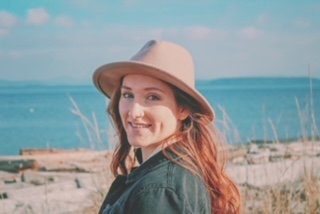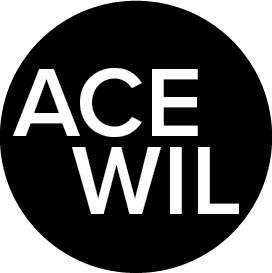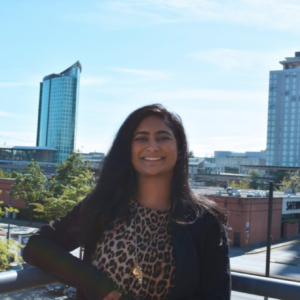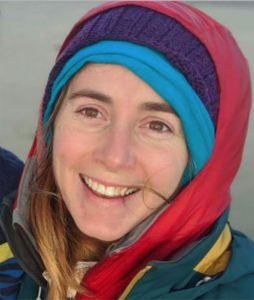The results are in! Congratulations to the five student winners and three honourable mentions of IMPACT 2020: WIL Student Story Showcase! Keep reading to see why these student stories stood out as messages of impact and innovation despite the challenges presented by COVID-19!
The Five Student Winners:
Shiven Khera
Management Co-op Student at UBC-Okanagan
Shiven worked closely with his supervisor, Associate Professor Dr. Eric Li who submitted this story on Shiven’s behalf:
Shiven Khera
“My student and I are partnering with a local Food Bank to co-develop a new donation management system. Since the beginning of COVID-19, Food Banks in Canada experienced a dramatic increase in demand. Our system will help our Food Bank partner to better predict the supply and demand of food as well as better track the expiration of food to minimize food waste. Our partner managed over CAD7 million value of food every year and served over 1,500 families in the region. Our system will digitize the food re-distribution and donation tracking system. In the next phase of the implementation, we will connect with local farmers to facilitate the surplus of the farm produced. In average, 17 to 19 percent of the produced was wasted at the farm level, our multi-agent donation management system aims to reduce at least 50% of the farm-waste by connecting the farmers with the local food bank. Unlike the commercialized inventory management system, our donation management system will be the first Canadian-based system that co-developed by Food Bank and an university research team. All our logic and system are customized for Food Bank and other non-profit organization operations.”
LeSandra Archachan
Business Co-op Student at Nicola Valley Institute of Technology
LeSandra Archachan
“I was hired to work in partnership with the local School District to distribute 200 used iPads to the community’s elders. This amazing project was in direct response to the COVID situation. Many Elders were shut-in this past year with no way to stay in touch with family and friends. Using appropriate COVID protocols, I was available to set-up the device and navigate through the iPad with the elders who needed help. I feel that getting the seniors to use the latest apps and the internet will make them more confident in using other devices in the future. It is important for elders to build the skills to stay connected to their loved ones in the ever-evolving technologies of today. I hope that more programs will be available in the future to seniors who need to gain the skills to stay connected to the outside world.”
Sheldon Langlois
Microbiology Co-op Student at UBC- Okanagan

Sheldon Langlois
“I started my position at Interior Health Authority mid-pandemic when the amount of COVID in the province was at a peak. I was hired to help decrease the workload of the Medical Laboratory Technicians, by performing PCR (polymerase chain reaction) on COVID, flu, and GI (gastrointestinal) parasite specimens during nights, which allowed for testing to be done 24/7. By having me work nights, the output of COVID results shot up, meaning people no longer had to wait multiple weeks to receive their diagnosis. After a couple weeks, I became specialized on 3 different PCR machines and was in steady communication with the medical doctors in hospital for specimen expedition. This was the first time a Co-op student held this position and the hospital very much appreciated my ability to uphold a high workload, thereupon granted me another work term.”
Renee St. Godard
Geography Co-op Student at the University of Victoria

Renee St. Godard
“In my co-op term I coordinated and facilitated over 50 colleagues in an 8 week training session on “Reconciliation”. With the province’s adoption of the United Nations Declaration on the Rights of Indigenous Peoples, learning what reconciliation is and how it is entangled in our everyday lives (personal and work-related) is vital to achieving it. It was an extremely profound project to have been able to participate in and facilitate and I am thankful that I was able to provide a safe space for questions and discussion to my co-workers. Reconciliation and all that it is comprised of is not an end goal, it is a journey, a path on which we learn and make mistakes, ask questions, and learn new things about ourselves, our neighbours and our province. It is a project I will always remember.”
Priyanka Maria Krishna
Communication and Health Science Co-op Student at Simon Fraser University
Priyanka Maria Krishna
“In Summer 2020, the Downtown Surrey Business Improvement Association (DSBIA) wanted to engage in the conversations that were happening within the community around ideas of justice, equity, diversity, and inclusion. As a Communication Co-op student, and the Community Engagement Intern, I helped create an initiative called Community Conversations. Since COVID-19 regulations limited the ability of community engagement in person, I designed the series to be fully virtual so that it was accessible. The seriescreated a space where people could come together to educate each other and themselves around these ideas, feel empowered and connected so that the sense of community was reinforced, and have their voices amplified. I hosted four different sessions during my term which were attended by a diverse 80 people. The Community Conversation initiative is still going on, and has covered topics such as housing vs homelessness, mental health, education, and environmental justice.”
The Three Honourable Mentions:
Robin Metcalfe
Social Work Practicum Student at UBC- Okanagan
Robin Metcalfe
“The project I contributed to is a multimedia resource that supports health researchers to engage people with disabilities as participants and co-researchers in health research. Deaf and disabled people have largely been excluded from participation in research, which has resulted in a lack of understanding about health experience and a lack of knowledge from which to draw in addressing health needs of Deaf and disabled folks. This project uplifts the value of supported, meaningful engagement in deciding research priorities, co-creating knowledge with researchers as partners, and identifying ways to mobilise that knowledge and make it accessible. The project leadership reflects these priorities; disabled and Deaf health sector, university, and community partners have collaborated to make digital animations, and there could not be a better learning experience than seeing and participating in a team that models the values and imperatives of inclusion this project envisions.”
Read more
Lorisa Williams
History and Indigenous Studies Internship Student at University of the Fraser Valley
Lorisa’s WIL Coordinator Elise Goertz submitted this story on Lorisa’s behalf:
“Lorisa Williams is History & Indigenous studies student hired as a WIL intern to help spearhead the launch of a new Peace and Reconciliation Centre initiative called the Collaboratorium. The Collaboratorium partners with local communities and organizations to provide student research internships. She has been instrumental in building the capacity for the Collaboratorium. She has sourced local organizations and developed relationships that will lead to ongoing sustainable paid internships for future students. Lorisa has been able to incorporate her Indigenous ways of knowing to enrich the Collaboratorium’s projects. She has facilitated online workshops, developed community building outreach skills, created social media and communication plans, and supported several large public events. Her WIL supervisor recognized the high level of skills Lorisa has contributed to the community and the future growth of the Collaboratorium. Lorisa’s WIL experience is an excellent example for how skills gain through a Liberal Arts education transfer into a workplace context.”
Alexandra Buhr
Integrated Environmental Planning Applied Research Student at Selkirk College
Alexandra Buhr
“In 2020, the year of learning on the fly, I found myself at the helm of a major project on an applied research team. The expectation was clear: I was to encourage acts of household emergency preparedness in local communities as part of a rural climate resilience project. Encouraging proactive behaviour in populations is tough stuff; doing it in the time of stay-at-home mandates is even tougher! Empowered by the anonymity of Zoom and email, I cold-called influential leaders from three different communities. I pitched my ideas to them about how we can best collaborate to promote household preparedness from a distance—and they jumped on board! Using the techniques of Community-Based Social Marketing and social media, I encouraged locals in three pilot communities to make emergency evacuation plans and build 72-hour preparedness kits for their homes. I gained invaluable interpersonal skills and statistical literacy from my work-integrated learning experience.”
If you’re an ACE-WIL Member, you can view all 70 story submissions on the project page:






